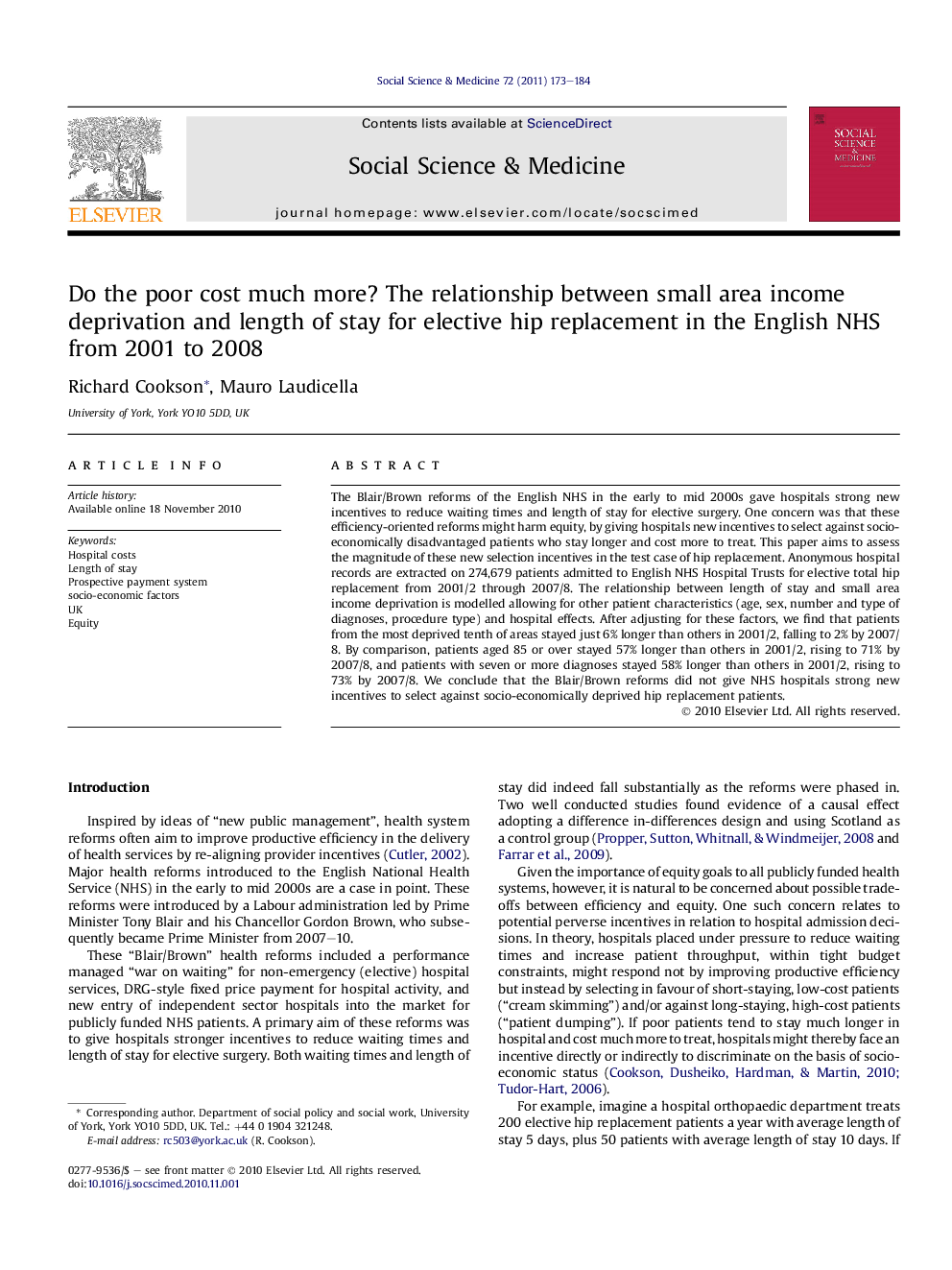| کد مقاله | کد نشریه | سال انتشار | مقاله انگلیسی | نسخه تمام متن |
|---|---|---|---|---|
| 952769 | 927539 | 2011 | 12 صفحه PDF | دانلود رایگان |

The Blair/Brown reforms of the English NHS in the early to mid 2000s gave hospitals strong new incentives to reduce waiting times and length of stay for elective surgery. One concern was that these efficiency-oriented reforms might harm equity, by giving hospitals new incentives to select against socio-economically disadvantaged patients who stay longer and cost more to treat. This paper aims to assess the magnitude of these new selection incentives in the test case of hip replacement. Anonymous hospital records are extracted on 274,679 patients admitted to English NHS Hospital Trusts for elective total hip replacement from 2001/2 through 2007/8. The relationship between length of stay and small area income deprivation is modelled allowing for other patient characteristics (age, sex, number and type of diagnoses, procedure type) and hospital effects. After adjusting for these factors, we find that patients from the most deprived tenth of areas stayed just 6% longer than others in 2001/2, falling to 2% by 2007/8. By comparison, patients aged 85 or over stayed 57% longer than others in 2001/2, rising to 71% by 2007/8, and patients with seven or more diagnoses stayed 58% longer than others in 2001/2, rising to 73% by 2007/8. We conclude that the Blair/Brown reforms did not give NHS hospitals strong new incentives to select against socio-economically deprived hip replacement patients.
Research highlights
► Reforms to the English NHS in the 2000s gave public hospitals powerful new incentives to reduce length of stay.
► We use comprehensive national data to examine how far this gave public hospitals an incentive to avoid potentially long-staying patients from deprived areas.
► Hip replacement is a good test case due to substantial variation in length of stay and considerable uncertainty about appropriate treatment.
► We find that age and number of diagnoses are much more powerful predictors of length of stay than area deprivation, with or without allowing for other factors.
► We conclude that the reforms did not give NHS hospitals strong new incentives to select against socio-economically disadvantaged hip replacement patients.
Journal: Social Science & Medicine - Volume 72, Issue 2, January 2011, Pages 173–184